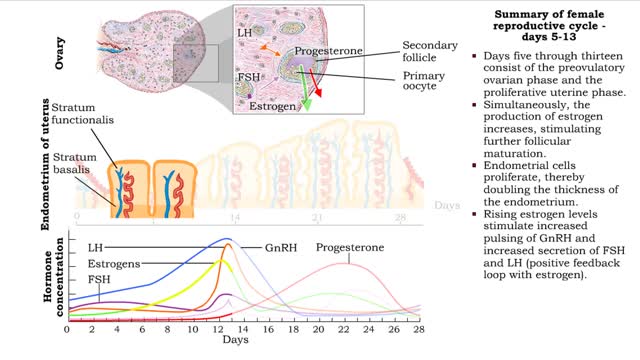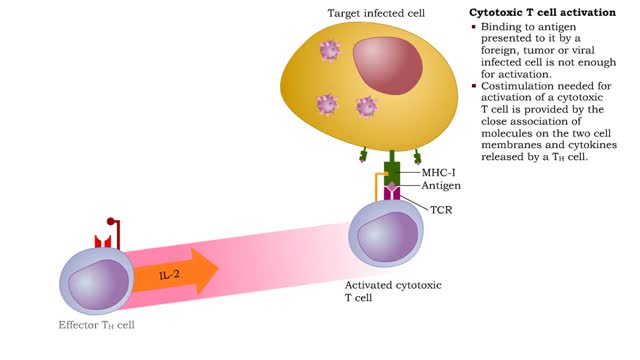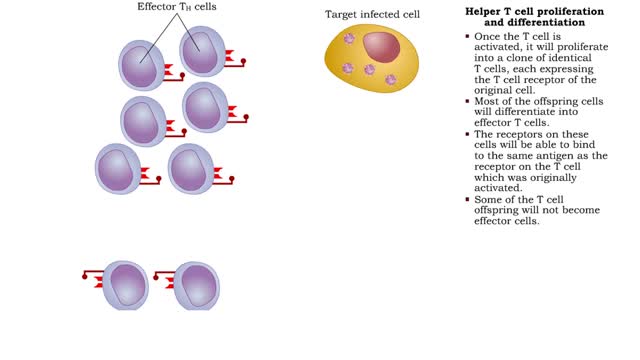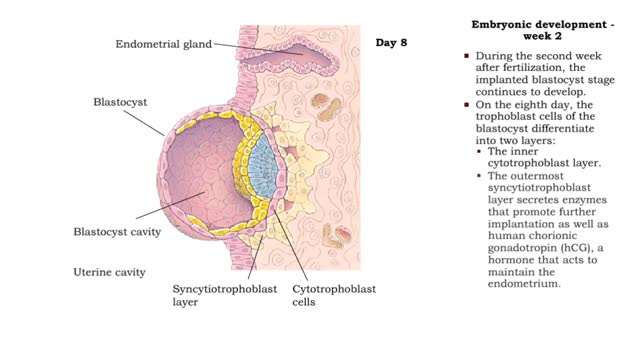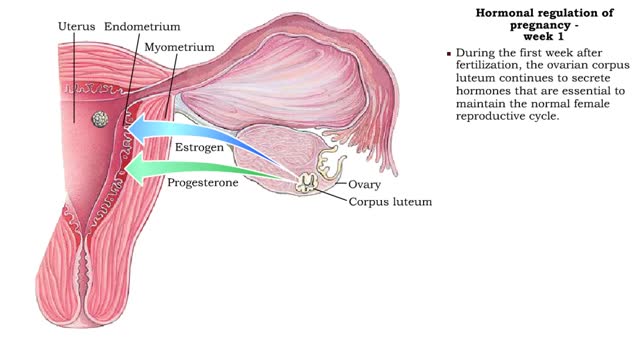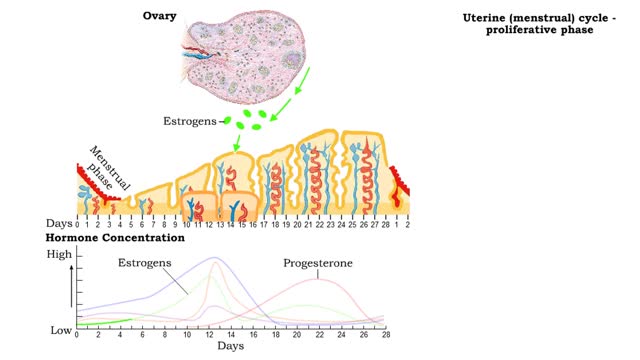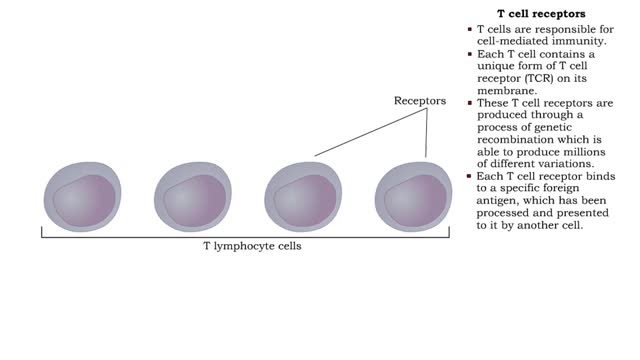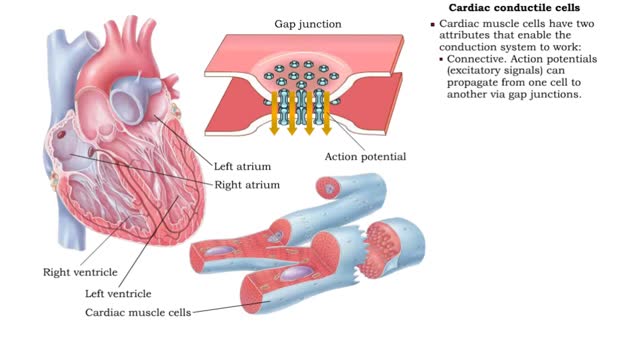Search Results
Results for: 'Endometrial cells proliferate'
Summary of female reproductive cycle days 1-28
By: HWC, Views: 7085
■ The first five days of the cycle include the menstrual phase. ■ Progesterone and estrogen levels are low. ■ Menses occurs. ■ GnRH pulses more frequently promoting FSH and LH levels to rise. ■ Primary follicles are stimulated to develop. ■ Days five through thirteen consist o...
Cytotoxic T cell receptors, activation, proliferation, differentiation & action
By: HWC, Views: 6995
• Most cells which have CD8 on their surface become cytotoxic T cells (Tc cells). • CD8 T cells recognize a foreign antigen when it is presented in conjunction with the protein, MHC-I. • Nearly all nucleated cells in the body express MHC-I molecules. • T cells that recognize self-pe...
Helper T cell receptors, activation, proliferation, differentiation & action
By: HWC, Views: 6753
• Most cells which have CD4 on their surface become Helper T cells (TN cells). • The CD4 1 cells only recognize a foreign antigen when it is presented with an antigen presenting immune cell (APC) that includes MHC-II protein. • The Helper T cell antigen receptor must match the presented...
Embryonic development - week 1 and 2
By: HWC, Views: 6682
The first through eighth weeks after fertilization are called the embryonic. Week 1 • Within a day, the zygote begins mitotic cell division (cleavage) forming blastomeres. By the 4th day, the blastomeres have formed a solid ball called a morula. • The morula enters uterine cavity ar...
Hormonal regulation of pregnancy - week 1
By: HWC, Views: 6970
• During pregnancy, hormones play a significant role in triggering changes in the mother and fetus. • Ormones : • Maintain the lining of the uterus and prevent menstruation. Prepare the mammary glands for lactation. • Increase flexibility of the pubic symphysis. • Affect the mot...
Uterine (menstrual) cycle - phases
By: HWC, Views: 6676
• The uterus goes through a cyclical developmental pattern to be ready for implantation and support of an embryo. • The uterine, or menstrual, cycle is under the control of ovarian horrnones. • The uterine cycle also has three phases: • Menstrual phase • Proliferative phase �...
By: HWC, Views: 6206
■ Secreted by kidney cells when blood oxygen is low. ■ Targets cells in red bone marrow that will become red blood cells. ■ Promotes increased numbers of mature red blood cells. ■ More mature red blood cells carry more oxygen so blood oxygen level is restored to normal.
By: HWC, Views: 6345
• T cells are responsible for cell-mediated immunity. • Each T cell contains a unique form of T cell receptor (TCR) on its membrane. • These T cell receptors are produced through a process of genetic recombination which is able to produce millions of different variations. • Each T ce...
By: HWC, Views: 6884
• In order for the heart to function properly, all of its cells must contract in a specific sequence. This sequence is determined by a pathway known as the conduction system. • Cardiac muscle cells have two attributes that enable the conduction system to work: • Connective. Action pot...
Advertisement



